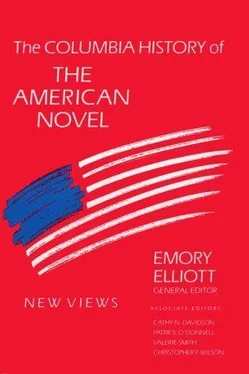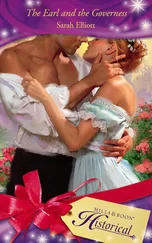The primary function of the "cultural voice" I am describing is to demythologize, to unravel the web of false pieties that would masquerade as virtue, thus exposing sham, duplicity, and pretension cloaked under the guise of authenticity, honesty, and integrity. Di-10- rected at those who have assumed positions of authority, power, and privilege, it often reveals claims of superior citizenship to be little more than hypocrisy, a cover for selfish, rapacious deeds. (A prototypical example of my ideal American novel would be E. L. Doctorow's The Book of Daniel [1971].) This quality of voice is fundamentally moral: in the novels that really matter, those fictions that change the way readers see or experience their world, expressive language and visionary commitment are aligned so that characters reach moral awareness through acts of speech; that is, the utterance of personal truths, values, and beliefs culminates in the long and often painful process of discovery. The "voice" with which a character or a narrator speaks, the language he or she chooses for that expression, are themselves agents of revelation of inner being and moral selfhood.
There are no cultural voices in the "early American novel," and there are four primary reasons for this absence. First, no authentic American language was available for literary purposes. The writers who constitute the canon here, from Foster and Rowson through Irving and Cooper, were thoroughly dependent on the modes, styles, rhythms, and structures of the English language that they found in the books of their favorite seventeenth- and eighteenth-century authors. While America may have proclaimed its political independence from Britain, it nevertheless remained culturally subservient well into the nineteenth century. One reason Irving was hailed as America's first significant author by the British literary establishment, for example, was that his elegant prose sounded as if it had been written by an Englishman. Twenty-five years ago, in The Colloquial Style in America , Richard Bridgman showed that not until the nineteenth century did American prose first incorporate a colloquial or spoken speech into its style; American writers, as Bridgman put it, began to "evolve a new means of expression out of the casual discourse of the nation," which included, among other things, an emphasis on "greater concreteness of diction" and "simplicity in syntax." The importance of this development must be underscored: if language creates consciousness, then "means of expression" creates literary forms of resistance; without an originality in either area there could be no genuine American voices.
Second, while the formality, propriety, and correctness of the written English language constrained early American authors, what may -11- have been equally limiting was the lack of cultural support of their creative efforts. America was simply too new and too raw a society to be overly concerned about the development of arts and letters; labor and resources were better expended on building towns and cities, roads and transportation systems, than on constructing an authentic American literature. Why should any healthy, able-bodied American citizen devote time and energy to products of the imagination, which were, after all, only of secondary or tertiary importance? Furthermore, when there was leisure available for literary pursuits, the lack of an international copyright made cheap reprints of British authors readily available. Why pay more for a book written by an American, which in any case was likely to be inferior? No aspiring American author could therefore afford to write full time — there was no profession of authorship in America as there was in England; the American Dr. Johnson did not exist — and without concentrated attention a bold indigenous literature was unlikely to appear. It is worth remembering that when Washington Irving became the nation's first successful professional author, he did so by going to England and winning recognition among the mother country's literati; having been approved abroad he could be sanctioned at home, which meant not only recognition but also, and perhaps even more important, dollars. But it did not mean the beginning of an American writer.
Third, where American culture did exist it tended to be parochial, thus generally distrustful of any form of written expression that was not expressly didactic. Literature, above all, was supposed to be edifying; its purpose was clearly that of moral improvement. Richardson's significant American following was a good illustration of this belief; as a Christian moralist (though Henry Fielding may have thought otherwise) he satisfied the public's overt need to see virtue rewarded, vice punished, and, whenever possible, raffishness reformed. But the novelist who sought to move beyond these boundaries, to, say, entertain through a tale of terror or adventure (seduction was too charged a subject to be considered entertaining), became highly suspect; such a book, being neither moral, educational, nor "truthful" (then as now, the vaguest of terms), served no socially redeeming purpose, and was condemned by clerical and secular leaders alike. Although the church may have been slowly losing its heg-12- emonic sway in American society, it still held enough authority to have its point of view taken seriously, and time and again the clergy (including such a luminary as Jonathan Edwards) warned that novel reading was an indulgence likely to lead to moral and spiritual decline. In the public sphere, prominent leaders (numbering among them figures no less revered than John Adams and Thomas Jefferson) decried the loss of a civic-minded feeling among the populace, a development they blamed in part on the withdrawal into a private and personal realm of being, emblematized perfectly by the isolated and self-absorbing experience of reading fiction. Such criticism encouraged neither experimentation nor forthrightness among American writers.
Attitudes eventually changed, of course, though the censure of the novel did not fully abate until well into the nineteenth century; what is truly noteworthy, however, was the continued, and in fact widespread, reading of novels in the eighteenth century, in spite of — and here one almost wants to say in opposition to — the criticism emanating from "high" places. By the turn of the century libraries were stocking, in addition to the standard sermons and funeral orations, novels and romances, travel narratives and adventure stories. And these were being consumed, as observers of the social scene noted, not only among middle-class families in seaport towns and cities along the East Coast but also by farmers and other dwellers in what was then the heartland of the country. It is difficult to know exactly what to make of this shift in reading habits, though as a form of popular resistance to the tedious sermonizing against fiction it may very well be part of a more general questioning of authority that occurred in the decades following the Revolution.
Fourth, if you have an unsettled society, there is no stable "American" genre of the novel — or, for that matter, anything else. The challenge to an established hierarchy of political leadership (composed, in the eighteenth century, of men who had wealth, talent, and social status), which is supported by such historical evidence as the worry over increased factionalism (addressed so cogently in The Federalist ), the fear that the rise of the popular press would lead to a decline in religious and civil authority, and the passing of repressive laws like the Alien and Sedition Acts (1798) — all these point toward the unsettled nature of society in the years during which the novel -13- was (supposedly) rising in America. In a society that was still being formed, and at a time when debates about the nature and shape of the government, and about such vital issues as the inclusivity or exclusivity of the voting populace, were taking place, the novel might very well have played a significant role in redirecting or restructuring power relations. Indeed, Cathy N. Davidson and others have argued that some novels tried to assume an ideological position — as, in Davidson's phrase from Revolution and the Word (1986), a "covert or even overt critique of the existing social order" — and that the more popular the genre became the more those vested with cultural authority worried over their loss of dominance. This was true because, unlike sermons, the novel required no intermediaries for interpretation or guidance; addressed to all readers, it presumed no special erudition on their part. In effect, it eliminated the need for mediation; the individual himself or herself assumed the role of authority. Novelists were then in an excellent position to shape public opinion, to become agents of the liberation of the democratic mind.
Читать дальше











